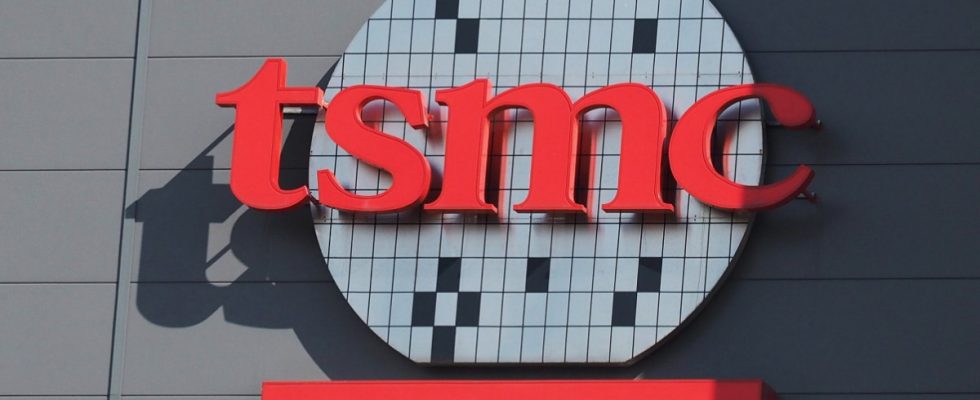When the dimensions get smaller and smaller, when it comes down to millionths of a millimeter, things get really thin. Not only on computer chips, on which a human hair looks like a tree trunk. Even with the companies that can still produce such tiny structures. Taiwan Semiconductor Manufacturing Company, better known by its acronym TSMC, is one of them. Much of the most advanced chips found in Apple laptops and many other computers or smartphones today were made in Taiwan. TSMC and Samsung are the only ones who master these enormously complex processes.
It is therefore not surprising that many states are keen to bring a planned Taiwanese plant into their country. Dresden was then awarded the contract for the factory. The final decision was made in Taiwan this Tuesday. A company with absolute cutting-edge technology in Germany – that sounds good. However, the world doesn’t just need them cutting-edge chips, i.e. those with the very latest and most complex manufacturing technology. She also needs the little bread and butter chips found in cars, refrigerators and many other things. And more and more of it. TSMC will produce exactly these chips in Dresden in cooperation with Bosch, Infineon and NXP. The three manufacturers, who are already based in Dresden, each have a ten percent stake in the new plant.
The first talks with the Taiwanese company took place two years ago, when Angela Merkel was still Chancellor. Since then, the negotiations had become more and more concrete. It was particularly important for TSMC to carefully examine the general conditions. Are there enough schools? Where do the skilled workers come from? There were a total of around 40 meetings at which the participants from Germany and Taiwan discussed the possibility of settling there, including meetings with Federal Chancellor Olaf Scholz and the President of the European Commission, Ursula von der Leyen. The then VW boss Herbert Diess is said to have campaigned for Dresden. This Tuesday, the company’s management committee made the decision in favor of Germany and Dresden. “Europe is an extremely promising location for semiconductor innovations, particularly in the automotive and industrial sectors,” said CC Wei, CEO of TSMC, in a press release.
Long tradition
The Dresden location, with its long tradition in microelectronics, sees itself as ideally suited for the settlement. Among other things, the Technical University of Dresden specializes in microelectronics, according to the state government. Around 75,000 people are already working in and around Dresden, either directly or with suppliers for microelectronics companies, and by 2030 this number is expected to rise to 100,000. It goes without saying that this also entails enormous challenges for city and country. Because the infrastructure has to grow with it, in Saxony one expects investments in the higher three-digit million range, for example for new roads or for schools and day-care centers and hopes for support here.
Chips, those tiny pieces of silicon, are the fuel of the modern world. Cars are full of them, as are all kinds of appliances: from electric razors to washing machines. Robot vacuum cleaners can use it to find their way through the home on their own, and of course they are the basic requirement for cell phones and computers. Chips are therefore extremely important for the economy, but Europe had almost said goodbye to their production. Because the countries here could not offer the conditions that other states, especially in Asia.
But the geopolitical situation has changed. The corona pandemic and the Russian war of aggression have shown what happens when there are sudden delivery bottlenecks or failures with elementary raw materials or products. Because there were no chips, car manufacturers had to cut back on production. In Europe alone, around 2.5 million cars could not be produced. Even things like dishwashers were suddenly in short supply. And all because of these small components. The high-end chips, which cost hundreds of euros and are needed to hunt monsters in PC games in the highest detail resolution through cellar vaults, were not missing. There were no chips that only cost cents. But they also have to be manufactured and delivered.
The EU wants to produce more chips again
The EU has therefore decided to increase the share of chip production in the member states. By 2030, Europe wants to increase its share of global chip production from less than ten to 20 percent. In absolute numbers, that would more than double, because it can be assumed that chip production will increase worldwide.
A big task. Experts consider it unlikely that the goal can be achieved. Although the EU has jumped over its shadow and allowed with the Chips Act to promote the settlement of chip factories. Otherwise, the EU tends to be reticent about industrial subsidies. The American chip manufacturer Intel will receive almost ten billion euros in funding for its planned plant in Magdeburg. And TSMC’s entry into Silicon Saxony will also be sweetened with up to five billion euros. The exact funding amount depends on how high the investment will ultimately be, so far there is talk of around ten billion euros. According to the Saxon state government, the funding would be a little less than half if it stayed that way.
Around 2,000 people will work in the new plant in Dresden Airport Park, which is scheduled to go into operation at the end of 2027 or beginning of 2028, and 40,000 wafers will be manufactured per month. Wafers are disks of silicon, here with a diameter of 300 millimeters, into which the chip structures are etched using various methods, among other things. The wafers contain many chips and then have to be sawed up in other factories and the individual chips packaged in housings.

